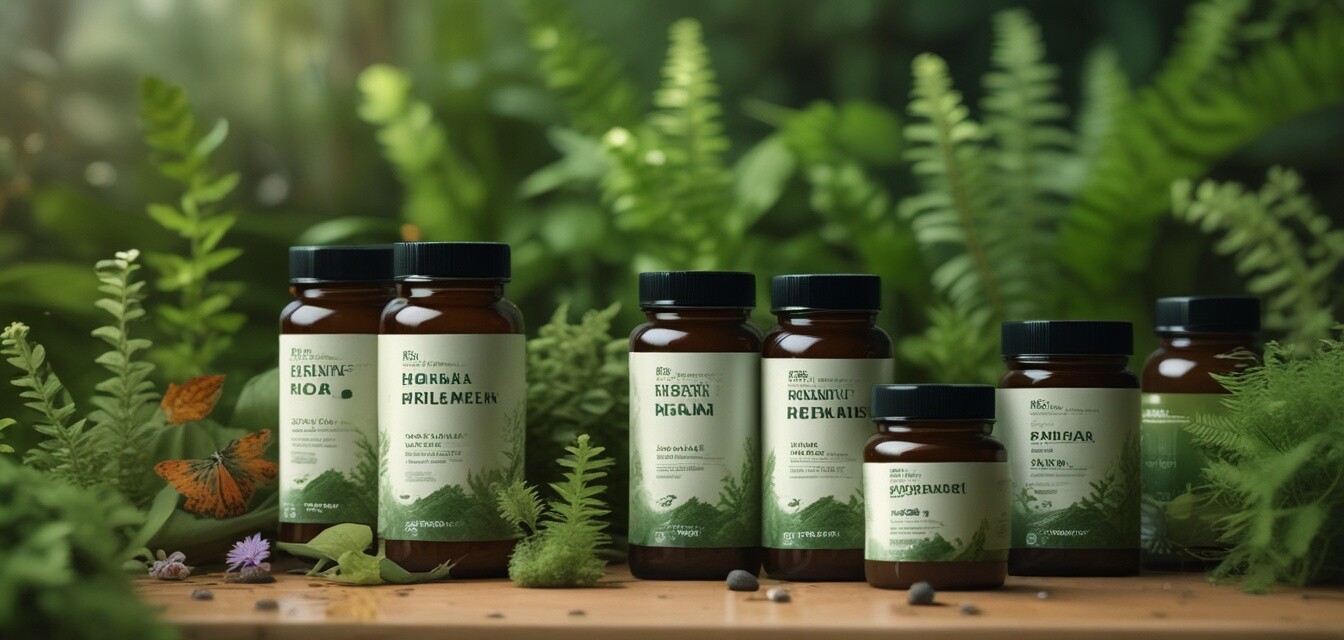
The Role of Herbal Supplements in a Sustainable Diet
Key Takeaways
- Herbal supplements can enhance nutrient intake without harming the planet.
- Choosing sustainably sourced supplements is key to a green lifestyle.
- Integrating herbal supplements into your diet supports a holistic approach to health.
- Understanding certifications can help you select ethical brands.
- Educating yourself about the environmental impacts of supplements fosters better choices.
As we continue to advance in our understanding of health and nutrition, the role of herbal supplements is becoming increasingly significant in promoting sustainable diets. Integrating these supplements into your daily routine not only benefits your health but also contributes to a healthier planet. This article explores how herbal supplements can fit into a sustainable lifestyle, the importance of sourcing them ethically, and practical tips for incorporating them into your diet.
Understanding Herbal Supplements
Herbal supplements come from various plant sources and are used to boost nutrient intake, improve overall wellness, and provide additional health benefits. They can range from a simple herbal tea to more complex formulations of powdered extracts. However, the key aspect of these supplements is how they are sourced and processed. Opting for products that are ethically harvested and sustainably manufactured is crucial.
Benefits of Incorporating Herbal Supplements
- Enhances nutrient diversity in your diet
- May support your body's natural processes
- Encourages mindful consumption by focusing on plant-based options
Choosing Ethically Sourced Herbal Supplements
When selecting herbal supplements, it's essential to consider where and how they are sourced. This not only affects your health but also has broader implications for the environment. Here are some tips for selecting ethically sourced herbal supplements:
Tips for Beginners
- Look for certifications such as USDA Organic or Fair Trade.
- Research the company’s sustainability practices.
- Opt for brands that use eco-friendly packaging.
- Choose local products to reduce transportation emissions.
Popular Herbal Supplements to Consider
| Herbal Supplement | Benefits | Sustainability Aspect |
|---|---|---|
| Turmeric | Anti-inflammatory properties | Can be grown sustainably and harvested ethically |
| Ginseng | Increases energy | Sourced from wildcrafted plants for ecological sensitivity |
| Spirulina | Highly nutritious superfood | Farmed in controlled environments reducing land impact |
Integrating Herbal Supplements Into Your Diet
Adding herbal supplements to your regimen can be simple and enjoyable. Here are a few suggestions:
- Add powdered herbal supplements to smoothies for an extra nutrient boost.
- Incorporate herbal teas into your daily routine.
- Experiment with cooking using herbal powders and extracts for enhanced flavors and health benefits.
Example: Natural Health Weight Loss with Puravive
One excellent resource that discusses the integration of herbal supplements in promoting a healthier lifestyle is the book Natural Health Weight Loss with Puravive. This book emphasizes sustainable weight loss strategies without requiring extreme diet changes.
Natural Health Weight Loss with Puravive
A comprehensive guide to achieving a healthier, leaner body through sustainable methods without restrictive diets.
Learn MoreEnvironmental Impact of Herbal Supplements
The production and consumption of dietary supplements can have significant environmental impacts, including land use and carbon emissions. By choosing sustainably sourced herbal supplements, you can reduce your carbon footprint and promote environmentally friendly practices within the industry. Understanding features such as certifications can help you make more informed choices.
Conclusion
Embracing herbal supplements as part of a sustainable diet can provide numerous benefits for both your health and the environment. By carefully selecting ethically sourced options and integrating them into your daily routine, you can contribute to a healthier planet. Each small step you take can create a significant impact on promoting sustainability.
For more insights into sustainable choices within the supplement industry, check out our resources on ethical sourcing of vitamins or the impact of supplements on the environment.
